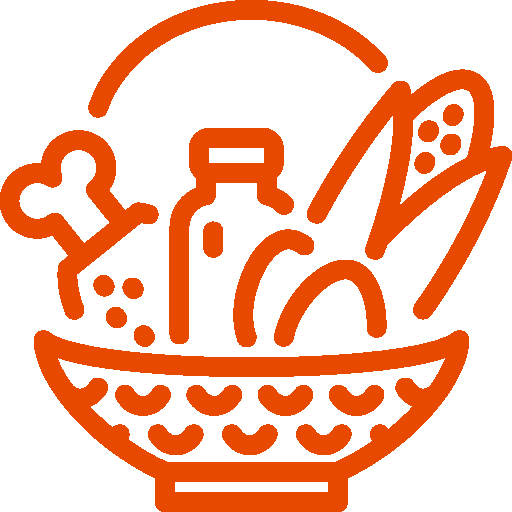Responsible Entities
The lack of a regular shipping line for food commodities to Arab and African countries.
Responsible Entities
Date 10/5/2022
Responsible Entities
Date 10/5/2022
Responsible Entities
Date
Responsible Entities
Date 10/5/2022
Responsible Entities
Date 10/5/2022
Responsible Entities
Date
Responsible Entities
Date 10/5/2022
Responsible Entities
Date 10/5/2022
Responsible Entities
Date 10/5/2022
Responsible Entities
Date 10/5/2022
Responsible Entities
Date
Responsible Entities
Date 10/5/2022
Responsible Entities
Date 10/5/2022
Responsible Entities
Date 9/26/2022
Responsible Entities
Date 9/26/2022
Responsible Entities
Date 9/26/2022
Responsible Entities
Date 3/15/2021
Responsible Entities
Date 3/15/2021
Responsible Entities
Date 9/15/2021
- Failure to implement a food safety system and non-adherence to international standards and specifications.
- Extensive use of inorganic pesticides.
Responsible Entities
Date 6/30/2020
- Impose dissuasive penalties on companies committing violations; penalties can include banning offenders from exporting for a certain period of time, in addition to imposing large financial penalties, and denying offenders access to export support.
- Introduce a farm coding system, and accredit farms to export and sell products in the local market.
- Expand the establishment of pesticide residue laboratories.
- Review and revamp the Ministry of Agriculture Seed Committee to improve its operational efficiency and responsiveness to the requirements related to seed exports.
Responsible Entities
Date 6/30/2020
Responsible Entities
Date
- The estimated loss in agriculture production is 30%; weaknesses throughout the supply chain and logistics, as well as ineffective farming methods are the primary causes of this loss.
Responsible Entities
Date 6/30/2020
- Establish logistics hubs across Egypt to improve the supply chain of agricultural products.
Responsible Entities
Date 6/30/2020
Responsible Entities
Date
- With regards to the customs release of meat and poultry shipments, Egypt has revoked the permits of 8 halal food companies operating in America. At the same time, it has approved only one company, which is permitted to operate in specific geographic areas. Furthermore, the company has neither the experience with halal food products nor any established contact with Islamic institutions that supervise and certify the halal slaughtering process. This same action was taken with regard to meat and poultry imports from South America, particularly Brazil. Such practices hinder trade flows and contrast with the situation in Saudi Arabia and Indonesia, which have in place clear regulations and standards governing the importation of halal meat.
Responsible Entities
Date 6/30/2020
- In consultation with the private sector and the Chamber of Food Industries, develop a mechanism with clear criteria for approving and revoking permits.
Responsible Entities
Date 6/30/2020
Responsible Entities
Date
- Non-compliance with good agricultural practices (GAP), including the requirements for a monitoring system and general quality standards.
- Irrigation water shortages, and its contamination with sewage in a number of areas.
- Problems of reclaimed land allocation and pricing.
- The lack of satellite images to assist in monitoring and regulating agricultural activities and the illegal construction on agricultural land.
Responsible Entities
Date 3/21/2019
- Carry out a comprehensive restructuring of the Ministry of Agriculture and its various agencies.
- Modify the agricultural policies and link them to the industrial and export policies and the findings and recommendations produced by agriculture research centers.
- Expedite the issuance of the new law to regulate the protection of biological resources.
- Review customs duties on raw materials, and facilitate import procedures by speeding the health inspection and customs clearance process for industrial inputs.
Responsible Entities
Date 3/21/2019
Responsible Entities
Date 3/21/2019
- Poor performance and ineffectiveness of agricultural extension agents in regard to guiding farmers during the entire production process.
- Insufficient budgetary allocations for agricultural research centers.
- The severe inadequacy of R&D investments geared towards improving this sector.
- Not only does the Veterinary Authority inspect and approve the manufacturer of animal-based products in countries exporting to Egypt, but it also requires that its staff attend production processes, even in countries known to abide by the rules of halal slaughter, such as Saudi Arabia.
- Strengthen agricultural technical education, and encourage enrollment.
- Increase funding for agricultural research to improve crop productivity (e.g., cotton and other important crops), and boost plant breeding.
- The Veterinary Authority should only inspect and approve the manufacturer of animal-based products in countries exporting to Egypt and forgo the requirement that members of its staff attend the production processes.


